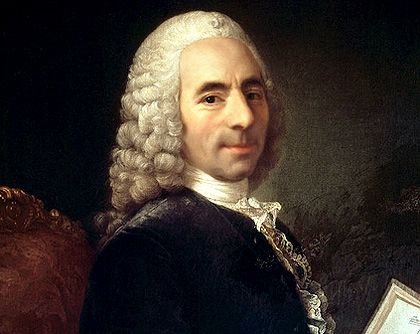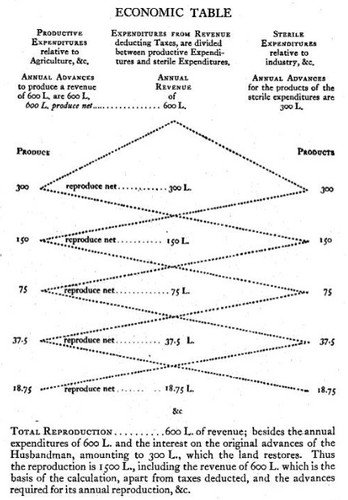
Francois Quesnay, doctor and economist, curious representative of the century of enlightenment, anime by his patter and its conceptual audacity a circle of scholars who is interested in a new science, the economy policy. His discussions gave birth to ideas which, still today, inspired for a good part of the economic programs of Governments and parties.
Quesnay was born near Montfort in Jun 4, 1694 to Mere and, according to the official biography, he was the son of a lawyer grown and prestigious. Such a thing would certainly have liked to our economist, but the reality is that his father Nicolas Quesnay was a farmer and trader giving little of interest in the education of its many children. “In fact, Francis was the eighth of thirteen brothers; and it is occupied if little of him during his first years as to its eleven years, it does not always knew neither read nor write. “ However, as the he was so intelligent, he obtained that someone, outside of his family, teaches him how to read; and it opened the first door to the art of Bled and, later, to the medicine, with an considerable success.
Since the beginning of humanity, there had three discoveries that served as the foundation for the political societies. The first was that of the writing, that allowed the men to transmit with security their laws, their history and their discoveries. The second, the invention of the money which is, according to his opinion, the link that unites all civilized nations. And the third, the discovery of the economic table, the glory of the 18th century, whose posterity will collect the fruit.

Quesnay was fascinated by the model of agricultural entrepreneurs rich and innovators from the North of France and the Netherlands (North and South), and aspired to extend this model to all of France. But for this, it was necessary to remove the jumble of economic regulations inherited from the time mercantilist view. His criticism of mercantilism and of the economic model interventionist nature of the former regime will provide the bases of liberal political economy (which will develop in Great Britain from Adam Smith) and will have a great influence in the 'time of the French Revolution (1789).
The essential doctrine of the physiocratie is summarized in the economic picture that Quesnay developed in 1758, the Amending and the perfecting when multiple later editions. “It was a model of economic reproduction which analyzed the movement of income in a society divided into three classes: farmers, owners and the other (that he characterized as sterile class).”
François Quesnay, with his famous economic table, wanted to demonstrate to form a clear the principles of the circulation of wealth between the different groups - farmers, owners and artisans in its model - which integrate an economic system. Although his theory still suffered from his obsession for the productivity of the agrarian sector and its criticism to the expenses which were conducted outside of this sector, its ideas on the economic balance constituted an important step in its time; and many economists, throughout the history of economic thought, since Smith to Leontief, passing by Marx have claimed his figure as one of the fathers of this science. As it is spades of philosophy and mathematics, it publishes in 1758 a famous economic table.
The book proposes a theory of a liberal economic policy according to which there is a natural balance between the production and consumption: "Everything that is purchased is sold, everything that is sold is purchased." This theory will be later disputed or amended without ever completely lose its relevance. Quesnay died in 1774 and four years previously he made print to Versailles his work Polygonométrie, with which he wanted to make known its studies on a few problems geometric complex.
No wonder I haven't heard about this guy in my economic classes. He's the middleman, for the most part. And hundreds if not thousands like him exists. Be it in the past or present, the credit of many ends up with just one.
I didn't know about him as well till I took an upper level economics class while I was in college. He is more interesting that he looks.
Hmm, I got the vibes. We always hear about Marx, Gandhi, Irving, Amartya Sen and such big wigs, but not these sort of people, whose lives are just as interesting if not more.